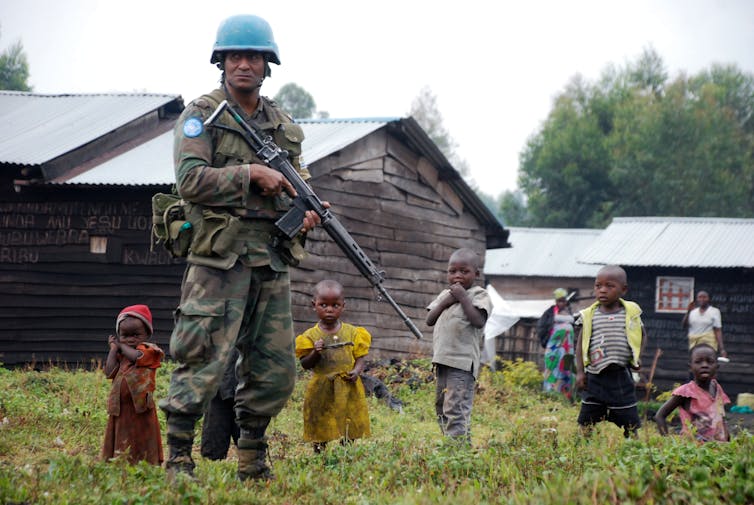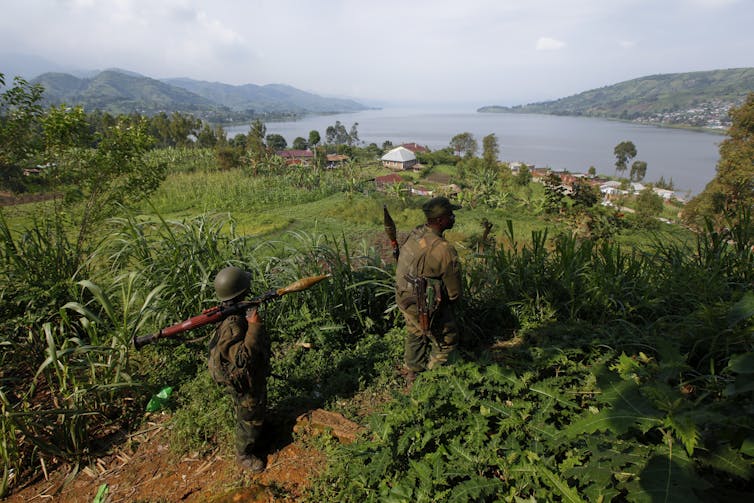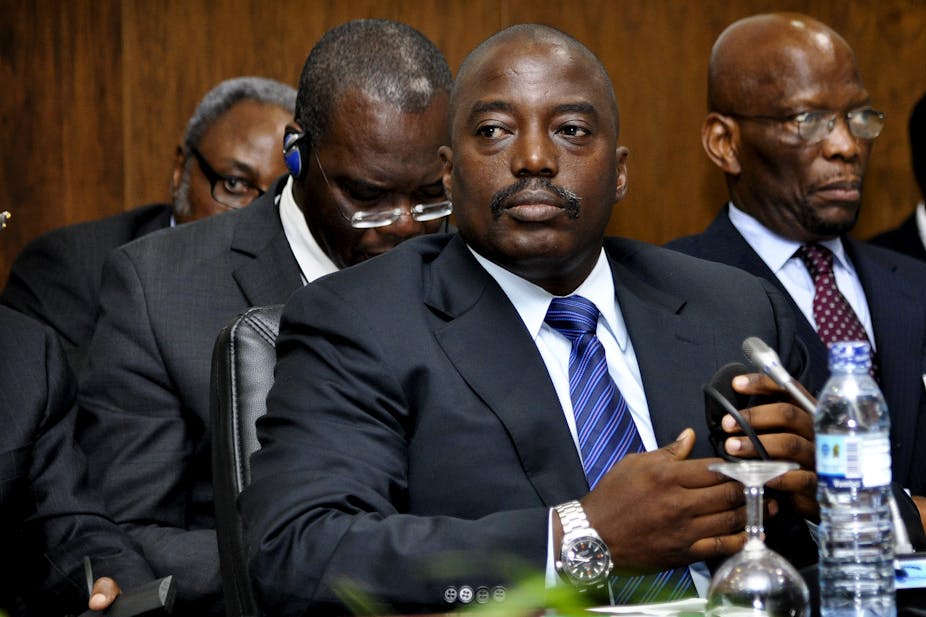The Democratic Republic of Congo (DRC) is still struggling to bring an end to months of torrid political wrangling. Ever since the incumbent president, Joseph Kabila, began to delay and obstruct scheduled elections that could eject him from office, the country has been stuck in political limbo. And while a peace deal to set a proper plan for the election has now been agreed, events are still moving at a dizzying pace.
First, the Pope and the church dramatically intervened to broker the deal, which (at least in theory) guarantees that Kabila will step down after the much-delayed election is held in 2018.
Then Etienne Tshisekedi, leader of the opposition umbrella movement Rassemblement (the Rally), suddenly died. Soon afterwards, Moïse Katumbe, a presidential candidate who fled the DRC after being sentenced to three years in prison, said he would return to Kinshasa for Tshisekedi’s funeral. Everyone is still guessing what his intentions really are.
As Congolese politics gets ever more complex and fraught, violence and oppression have become the norm in parts of the country. Regrettably, the movements and forces behind it are too numerous to survey in much detail – but a few stand out.
Central Congo is seeing intense fighting between the state and the followers of the late rebel leader Kamwina Nsapu; hundreds of people have been killed and many more displaced. The violence has been condemned by the country’s UN Stabilisation Mission, but to little effect. It is more than matched in the east of the country, where various Maï-Maï rebel groups are still furious with the Congolese army for arresting their leader, David Maranata, at the start of 2017. They have been stepping up their attacks with a vengeance ever since.

Elsewhere, violent movements once thought nearly extinguished are suddenly back in the picture. The Alliance of Democratic Forces (ADF) has gone from an obscure and rather marginal quasi-jihadist group to a serious threat, lately mounting a spate of violent attacks on civil society in the Kivu region, in the east of the country. It’s also unclear whether M23, a dreaded militia movement that was dealt a crippling blow by the Congolese army and Maï-Maï rebels in November 2012, is now making a bloody return and threatening to derail the already rickety election process.
With the DRC seemingly fragmenting once again and regional warfare ramping up, it’s only natural to wonder what hope there is for the country’s civil society at all. As long as Kabila remains in power, what little legitimacy the state still enjoys will steadily ebb away, and local warlords such as Maranata will inevitably seize the initiative. Politicians, not least Kabila himself, are running out of time. So what is to be done?
Onward and upward?
All politicians, national, local and regional, need to keep up the pressure on the president to resign. Power vacuums in the DRC are seldom filled by anything good; few could forget the fall of Mobutu and the onset of the first and second Congo Wars, which some have estimated killed more civilians than any other conflict since World War Two.
Tshisekedi’s death is a bitter blow to the Rally, and particularly its main constituent party, the UDPS, which is in a very disorganised state. UDPS members need to remain steadfast and make it clear that their leaders should not accept payoffs from the Kabila government to remain silent. As such, UDPS chairperson Jean-Marc Kabunda needs to quickly unify the party and make it a force to be reckoned with once again.

A strong UDPS could spur some much-needed changes. It could finally seize the initiative to oust the Rally’s president, Pierre Lumbi, who has strong connections to the Kabila regime. He should step down; the list of potential replacements isn’t long, but there are at least some options. If his lawyers can keep him out of jail, Moïse Katumbe is the most obvious and electable presidential candidate. But for just those reasons, Kabila will work hard to lock him up. Clearly, reserve candidates to lead the Rally need to be found.
There are a few options, among them Etienne Tshisekedi’s son Felix; he’s not yet famous in his own right, but his father’s name will carry much weight. Then there’s veteran politician and former cabinet member Vital Kamerhe, whose time to lead may finally have come. If he put his heft behind the Rally and Lumbia moved down the hierarchy to make way for him, the movement might be considerably strengthened.
A viable and competent opposition wouldn’t suddenly solve all the DRC’s problems, but it could be the first step towards a secure peace. The international community must continue to show their support for the 2006 constitution and pressure Kabila to step down. His time in office needs to end – and as far as his country’s people are concerned, the sooner the better.
This article originally stated that Moïse Katumbe had already returned to Kinshasa; at the time of writing he had only said he will return at some point. The error has been corrected.

